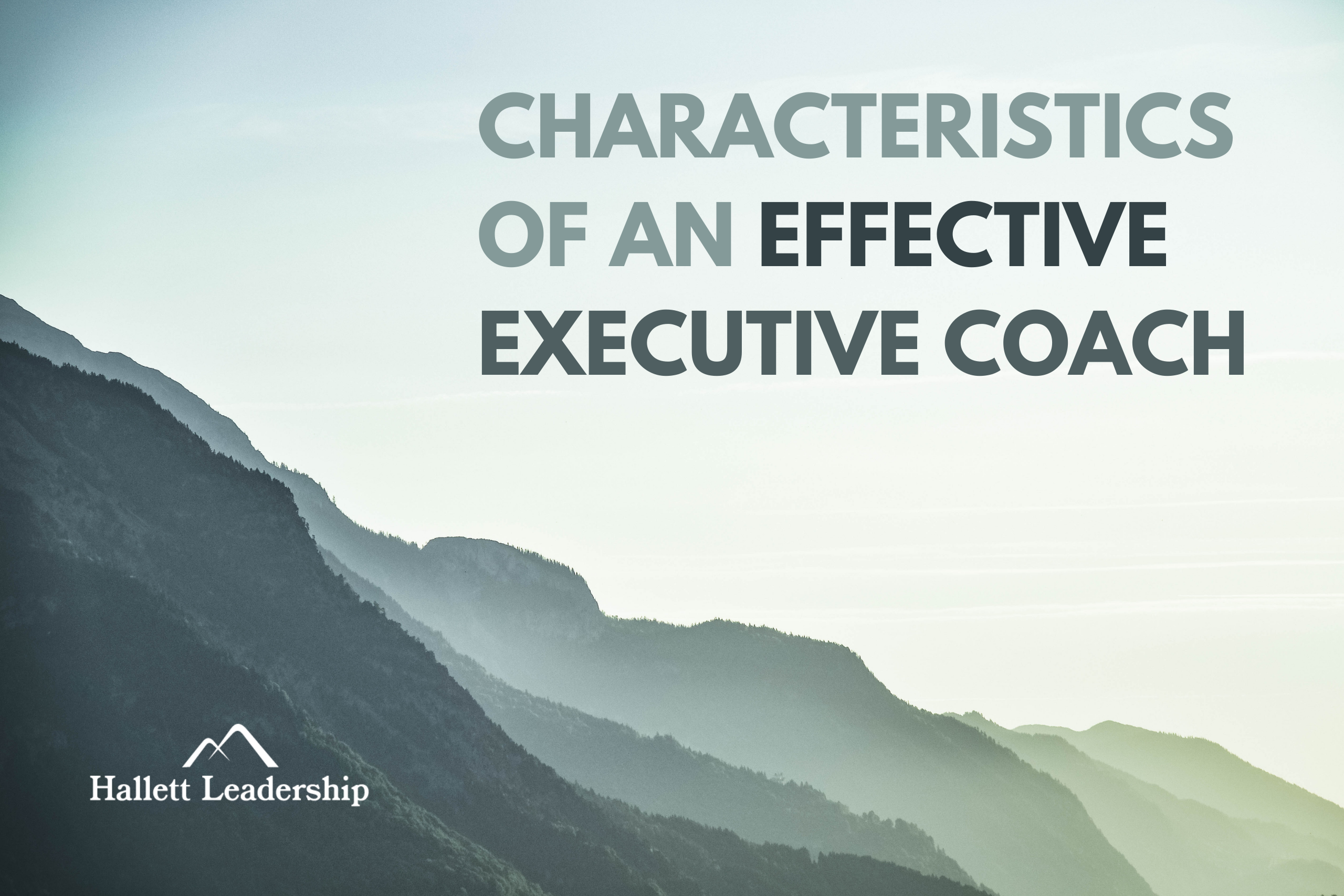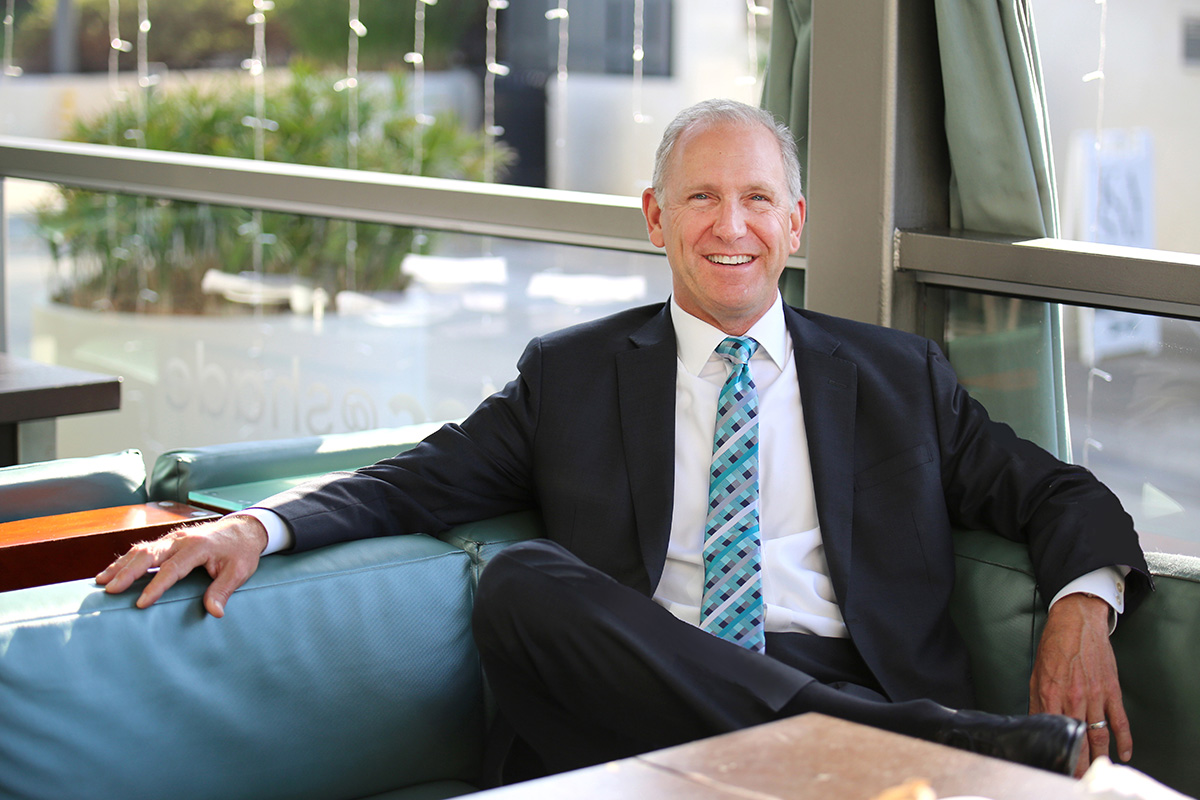There are many, many executive coaches out there on the market, and in the age of COVID-19, we have become much more comfortable doing things like high-end coaching over Zoom. Therefore, any english-speaking executive coach, anywhere in the world, is now part of your potential vendor pool. How do we sort the talent pool and find the best coach for us? What are the characteristics of an effective executive coach?
As individuals, we bring a unique combination of strengths and growth areas to the table, wherever we go. A coach is no different. This is why in practice, it isn’t possible to prescribe the precise characteristics of the most effective coach for you. Nonetheless, below we’ll attempt to provide you with a few baseline characteristics to consider when vetting your future coach.
A Person Willing to Support You in Venturing Outside Your Comfort Zone… And Providing Honest Feedback Along The Way
No matter your coach’s background or work history, no matter their degree of esoteric management knowledge, their dominant behavioral style, philosophy, or executive presence… strongly consider paying attention to the following characteristic:
The coach’s perceived willingness to support you in venturing outside your comfort zone into the place where you can discover and develop new modes of thinking and leading. You could also describe this as your coach’s ability to engage the Discovery Model.
Paired with this willingness to guide you outside your comfort zone, look for a coach with a demonstrated willingness to provide honest, clear-sighted feedback to their executive-clients as to what is or is not working, both now and as they venture into unknown territory.
These skills, when combined, facilitate an effective learning and development process. Learning and development lies at the heart of an effective executive coaching partnership, enabling the executive client to show up for their company team in an even more valuable way.
As a postscript to this, keep in mind to be wary of coaches who lead with out-of-the-box methodologies and models. Every client is unique, so give priority to coaches who treat each client venture as a new journey. Such coaches will likely guide the process according to basic principles, while allowing for flexibility and adjustment to your unique needs and circumstances today, right now in this very moment… rather than attempting to fit you into their prescribed model… or box.
Self Awareness
Self awareness is an incredibly important quality for your coach to possess. Why? The value of a coach’s insight on you, your work environment, and your career directly corresponds to the depth of that coach’s self-awareness.
Any leader, including an executive coach, will be more effective when they achieve a high-level of self-awareness. Effective, authentic leaders understand their own strengths, shortcomings, and areas for improvement. As they take steps to uncover their own blind spots, they learn how to show up authentically and create deeper connections, and become more effective at coaching their clients to do the same.
When such a person really comes to understand themselves well, they can look out at the world and perceive deeper patterns and dynamics, mostly invisible to the undeveloped eye.
This is because such a self-aware person can recognize in others, and in the communities around them, things that mirror, or correspond to, the things they learned about themselves in the process of developing their own self-awareness – or, moving things from their blind spot into their full conscious awareness.
Therefore, the characteristic of self awareness in your coach is incredibly important, because self-awareness is the origin of their insights about you, your career, and your work environment.
Those insights are essentially what you’re paying your coach to provide.
Vet your pool of prospective coaches with a heavy prejudice toward well-developed self-awareness. Get referrals. Connect with their current or past clients. In an ideal scenario, aim for a coach who you perceive has greater self-awareness than you do.
Authenticity
Pay attention to how your prospective coach shows up. Do they feel comfortable in their own skin, or do they appear to be presenting a persona of some kind? While this can sometimes be difficult to discern, rely on these two areas of focus:
-
Signs of Authenticity
Authentic people tend to be relaxed in their own skin, comfortable and well established in their identities. Humility is a sign of comfort and true confidence. Such a person can often have the effect of making people feel more comfortable themselves. If you feel engaged, relaxed, and positive as a result of your prospective coach’s presence, that is generally positive feedback worth taking note of.
-
Signs of Pretense
Anyone who projects the image of being perfect, flawless, massively successful, intimidating, or “impressive” in a way that causes others to shrink or become reticent, is worth noticing. While it is certainly possible for a person to be authentic and have a shock and awe effect on others (Tony Robbins comes to mind), a person to whom others respond by withdrawing or closing up, may be coming from a place of pretense.
There are highly successful coaches out there who when you meet them can cause you to feel comfortable, or engaged in a worthwhile conversation. There are others who present a larger, perhaps inflated, version of themselves.
Ask yourself which manner of presenting feels more like a match to your own understanding of the word “authenticity.”
Emotional Intelligence
Emotional intelligence has been defined as the ability to regulate one’s own emotions, and by extension the ability to positively influence the emotional states of the people around them.
At Hallett Leadership, we prefer to define emotional intelligence as an extension of self-awareness. Individuals who know themselves well, become capable of genuinely serving others. These people can show up to work asking themselves: “What can I do today to draw the most from my team? How can I support each of my team members in being their best and doing their best?”
In a coach, emotional intelligence may show up in a number of different ways.
A relevant expression of emotional intelligence might look like the coach’s ability to lead the executive client toward fostering strong, authentic partnerships with people across the company in the interest of creating a strong, win-win working environment.
Integrity
Does your prospective executive coach honor agreements? Are they punctual? Do their actions align with their deeds? Is the coach’s behavior inconsistent with what they describe as an effective leader?
It can be challenging to sense a person’s level of integrity at the outset of a relationship. References and conversations with the coach’s past clients and current partners can be very helpful in discerning that coach’s level of integrity.
Pay attention to your prospective coach’s track record for aligning their deeds with their words.
Conclusion
While there is no concrete prescription for the ideal characteristics of an effective coach, we hope that exploration of the qualities above can help structure your thinking about what to look for in the coach you eventually hire. We wish you the best of luck on your quest toward becoming an authentic leader, and creating an organizational culture where high performance is the new normal state of affairs. Please contact us if you are ready to explore what that process might look like at your organization.





